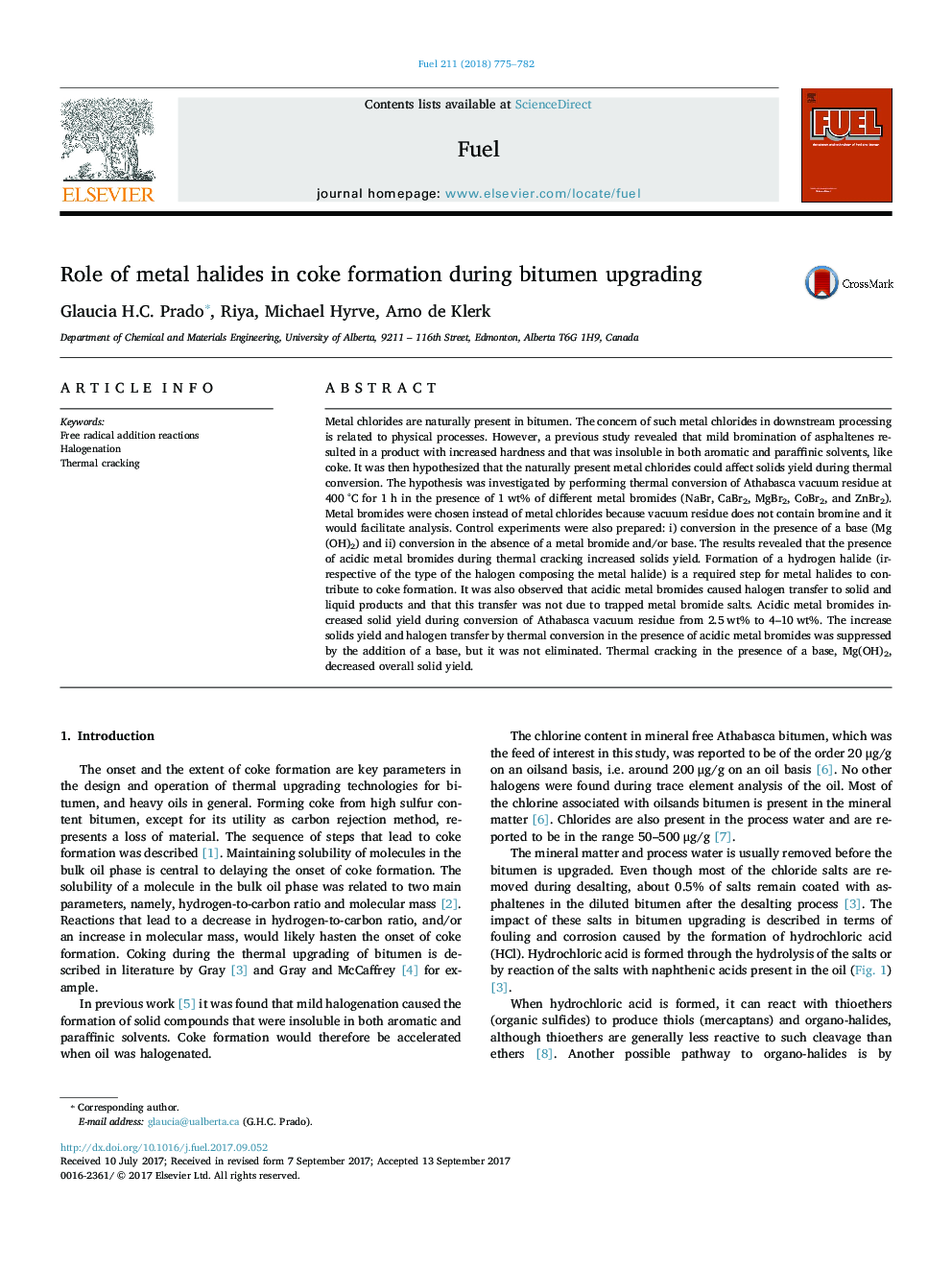| کد مقاله | کد نشریه | سال انتشار | مقاله انگلیسی | نسخه تمام متن |
|---|---|---|---|---|
| 6473612 | 1424953 | 2018 | 8 صفحه PDF | دانلود رایگان |
- Acidic metal bromides increased solid yield during conversion of Athabasca vacuum residue at 400 °C for 1 h from 2.5 wt% to 4-10 wt%.
- Halogen incorporation in the organic liquid after thermal conversion with 1 wt% acidic metal bromides was 3-7 μmol/g.
- Increase solids yield and transfer of halogen by acidic metal bromides was suppressed, but not eliminated by the addition of a base.
- Thermal cracking in the presence of a base, Mg(OH)2, decreased overall solid yield.
Metal chlorides are naturally present in bitumen. The concern of such metal chlorides in downstream processing is related to physical processes. However, a previous study revealed that mild bromination of asphaltenes resulted in a product with increased hardness and that was insoluble in both aromatic and paraffinic solvents, like coke. It was then hypothesized that the naturally present metal chlorides could affect solids yield during thermal conversion. The hypothesis was investigated by performing thermal conversion of Athabasca vacuum residue at 400 °C for 1 h in the presence of 1 wt% of different metal bromides (NaBr, CaBr2, MgBr2, CoBr2, and ZnBr2). Metal bromides were chosen instead of metal chlorides because vacuum residue does not contain bromine and it would facilitate analysis. Control experiments were also prepared: i) conversion in the presence of a base (Mg(OH)2) and ii) conversion in the absence of a metal bromide and/or base. The results revealed that the presence of acidic metal bromides during thermal cracking increased solids yield. Formation of a hydrogen halide (irrespective of the type of the halogen composing the metal halide) is a required step for metal halides to contribute to coke formation. It was also observed that acidic metal bromides caused halogen transfer to solid and liquid products and that this transfer was not due to trapped metal bromide salts. Acidic metal bromides increased solid yield during conversion of Athabasca vacuum residue from 2.5 wt% to 4-10 wt%. The increase solids yield and halogen transfer by thermal conversion in the presence of acidic metal bromides was suppressed by the addition of a base, but it was not eliminated. Thermal cracking in the presence of a base, Mg(OH)2, decreased overall solid yield.
Journal: Fuel - Volume 211, 1 January 2018, Pages 775-782
